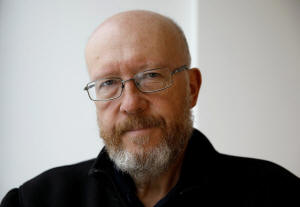Future of Poland's Holocaust research hangs on court case, academics say
 Send a link to a friend
Send a link to a friend
 [February 09, 2021]
By Alan Charlish and Anna Wlodarczak-Semczuk [February 09, 2021]
By Alan Charlish and Anna Wlodarczak-Semczuk
WARSAW (Reuters) - The fate of future
research into the actions of Poles during the Holocaust could be set on
Tuesday, academics say, in a court ruling on a case that pits two
leading historians against an elderly litigant.
In a country where close to 3.2 million Jews are estimated to have died
during more than five years of Nazi rule, the events of World War Two
remain politically charged.
A significant body of research suggests that, while thousands of Poles
risked their lives to help Jews, thousands also participated in the
Holocaust.
But Poland's governing nationalist Law and Justice party (PiS) has said
it views any investigation into complicity by Poles in the wartime
slaughter of Jews as dishonouring the country.

One book on that topic, "Night without an end. Fate of Jews in selected
counties of occupied Poland", names Edward Malinowski as one such
collaborator.
His 81-year-old niece, Filomena Leszczynska, is suing the book's
editors, Barbara Engelking and Jan Grabowski, for tarnishing his memory
with a claim that her lawyer says they have not proved.
In 2018, an international backlash forced PiS to drop a law that would
have made it a crime to suggest Poland bore any responsibility for Nazi
atrocities.
For Grabowski, Tuesday's case covers similar ground by attempting to
establish offence to national dignity as grounds for suing over any
future similar claims.
"If these terms, national pride, national dignity, find their way into
Polish civil litigation and procedure, that will be the end of us
writing history... of the Holocaust in Poland in the way we do," he told
Reuters.
Other Polish academics as well as Jewish organisations such as Israel's
Yad Vashem have also expressed concern that the trial may undermine
freedom of research.
[to top of second column]
|

Jan Grabowski, one of the editors of "Night Without End: The Fate of
Jews in Selected Counties of Occupied Poland", poses for a picture
after an interview with Reuters in Warsaw, Poland February 8, 2021.
REUTERS/Kacper Pempel

The case is being funded by the Polish League Against Defamation,
which opposes claims of Polish involvement in the murder of Jews.
Leszczynska's lawyer, Monika Brzozowska-Pasieka, denies it aims to
introduce new avenues for litigation.
"We say that the authors violated the personal rights of Filomena by
identifying her uncle as an accomplice, as a murderer, simply," she
said.
Brzozowska-Pasieka argues that the historians failed to follow
correct research methodology when compiling the book, an accusation
that Grabowski denies.
Polish Jews account for around half the Jews estimated to have been
killed in the Holocaust. A further 3 million non-Jewish citizens
also died under Poland's Nazi occupation.
"There are (Polish) people who did good things (then). There are
people who did bad things," said Poland's Chief Rabbi Michael
Schudrich.
"If you cannot face the bad things that you have done in the past it
limits the chances of you ever becoming better in the future."
(Reporting by Alan Charlish, Anna Wlodarczak-Semczuk and Kacper
Pempel, additional reporting by Joanna Plucinska; editing by John
Stonestreet)
[© 2021 Thomson Reuters. All rights
reserved.] Copyright 2021 Reuters. All rights reserved. This material may not be published,
broadcast, rewritten or redistributed.
Thompson Reuters is solely responsible for this content.
 |